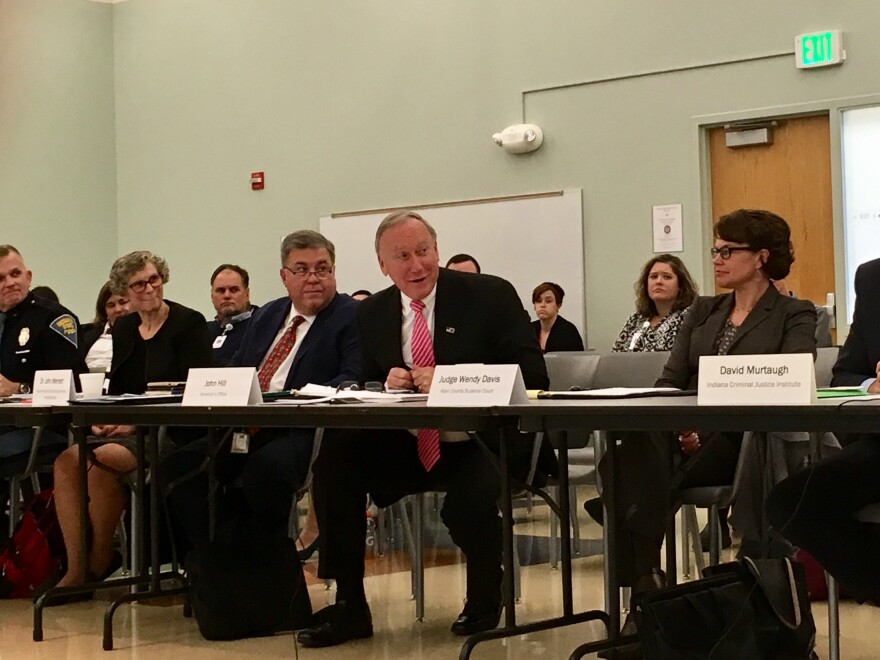A group created to respond to Indiana's growing drug abuse epidemic will now give way to a permanent commission studying the same topic.
The Governor’s Task Force on Drug Enforcement, Treatment and Prevention met for the final time Monday.
The temporary task force was created to study the state’s drug epidemic and recommend actions to the governor. A permanent replacement —the Indiana Commission to Combat Drug Abuse—will begin meeting in 2017.
The task force was initially set to meet three times, but it soon became apparent to health officials the problem merited more attention—the task force conducted 12 meetings around the state.
The original group showcased leaders from many diverse professional sectors, including representatives from the Indiana Chiefs of Police as well as representatives from the insurance, medical and faith-based communities.
The law directs the new 18-member commission made up almost entirely of heads of Indiana government agencies, such as the Indiana Criminal Justice Institute and the Family and Social Services Administration. The final list must be approved by incoming governor Eric Holcomb.
Task force co-chair John Wernert says that’s by design. He says the first task force was about learning—that’s why its meeting locations moved around the state. The new commission will be focused on directing policy and working with the legislature.
Now going forward whether its legislation or actually changing public policy we’ll be able to do that with the agencies.
Werner says the new commission has its work cut out for it. Indiana’s drug problem, he says, is mutating and, in some cases, becoming more alarming.
“The lethality and the potency of the drugs that are now available are killing more folks,” he says. “Even reviving individuals who are using synthetic fentanyl requires three or four doses of Narcan.”
All in all, the original task force made 19 recommendations over 15 months, such as suggesting the Family and Social Service Administration remove prior authorization requirements for physicians who want to prescribe addiction fighting medications.
The group also endorsed certain opioid prescribing guidelines and recommend making changes to the state’s INSPECT drug monitoring system.
According to the task force’s final report, all 19 of the requests have been or are in the process of being implemented.






